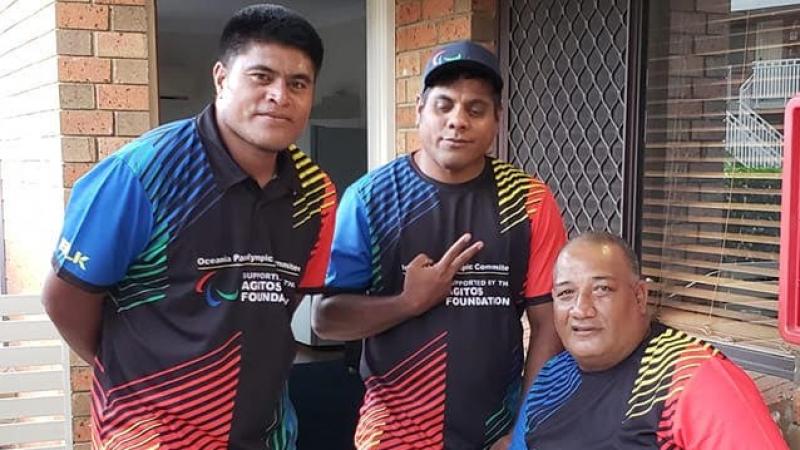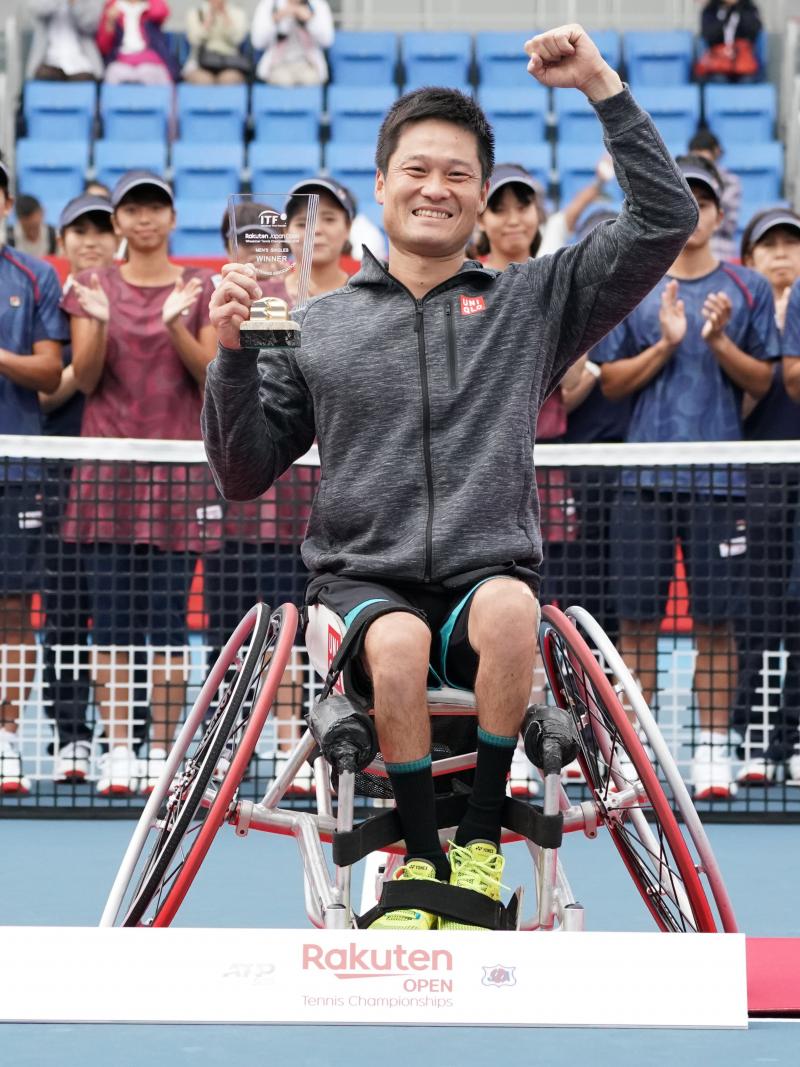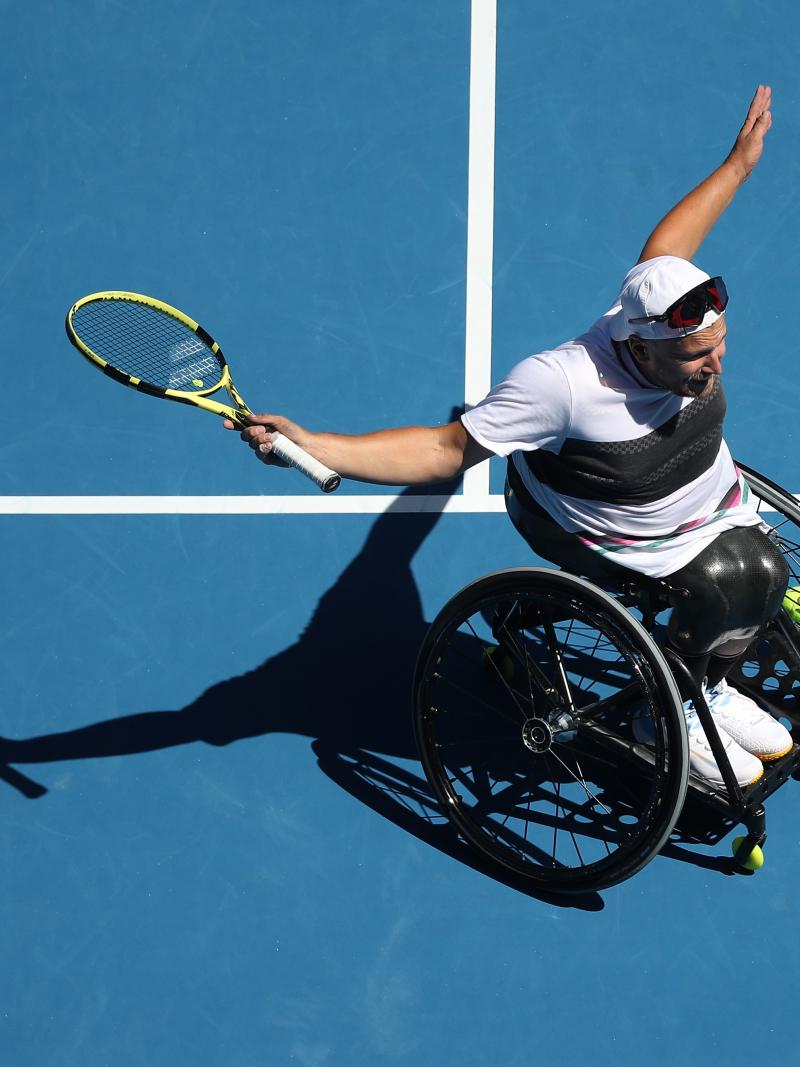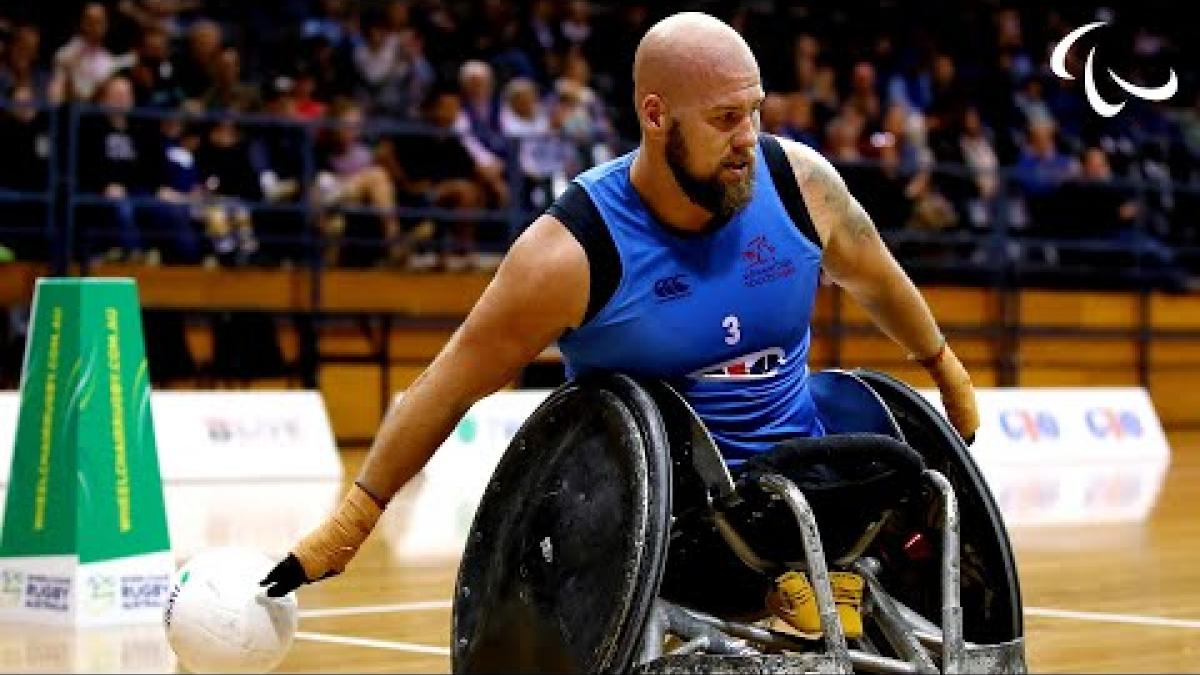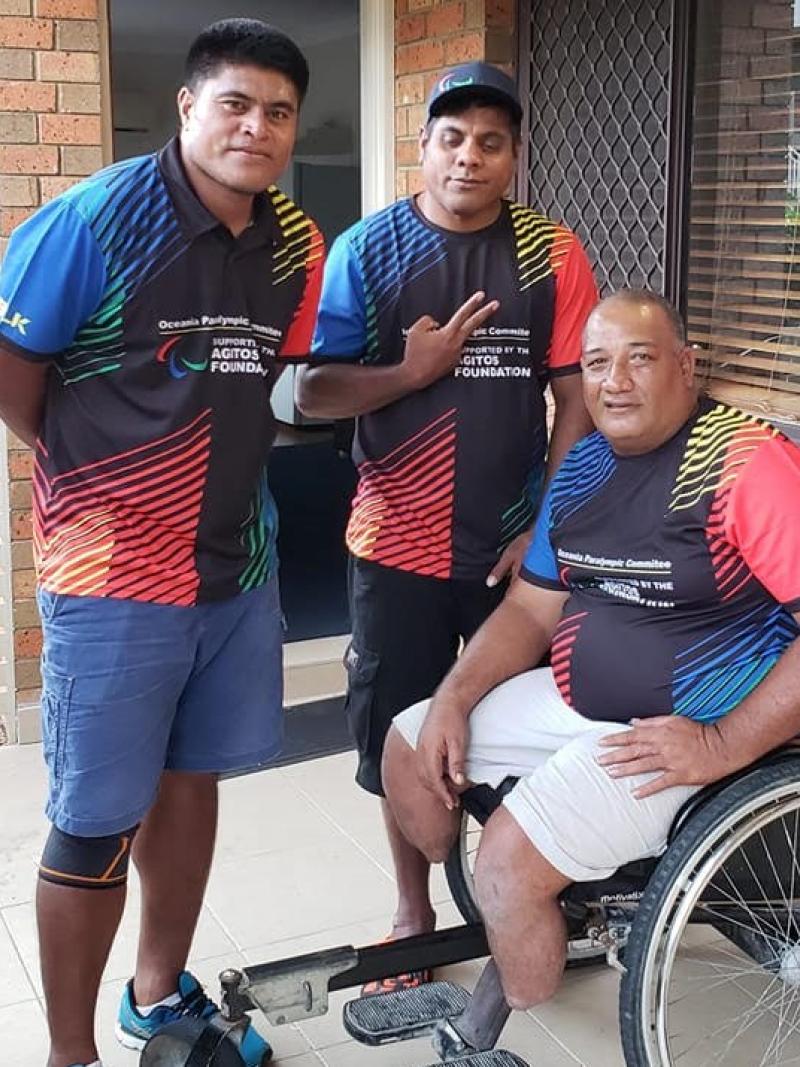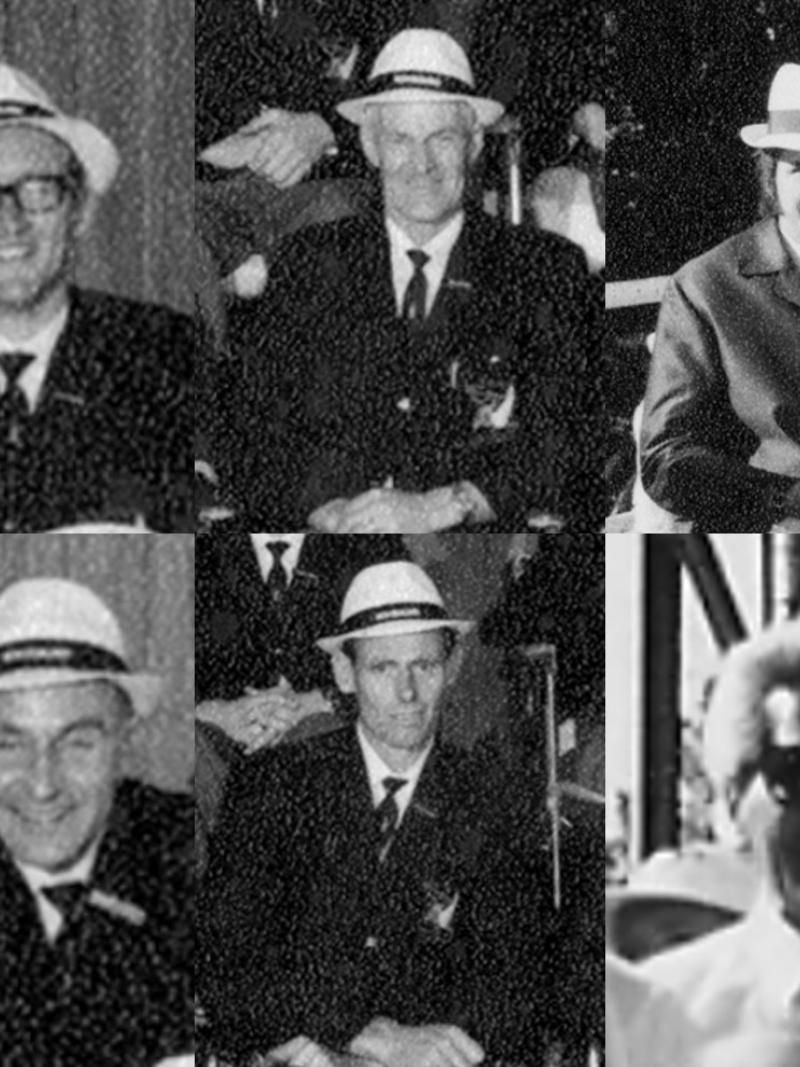Plenty to cheer for Oceania Para athletes in 2020
Australian Para athletes made the most of the year outside the field of play, from Madison de Rozario’s Barbie doll to Ellie Cole and Ryley Batt starring in Netflix's 'Rising Phoenix' 23 Dec 2020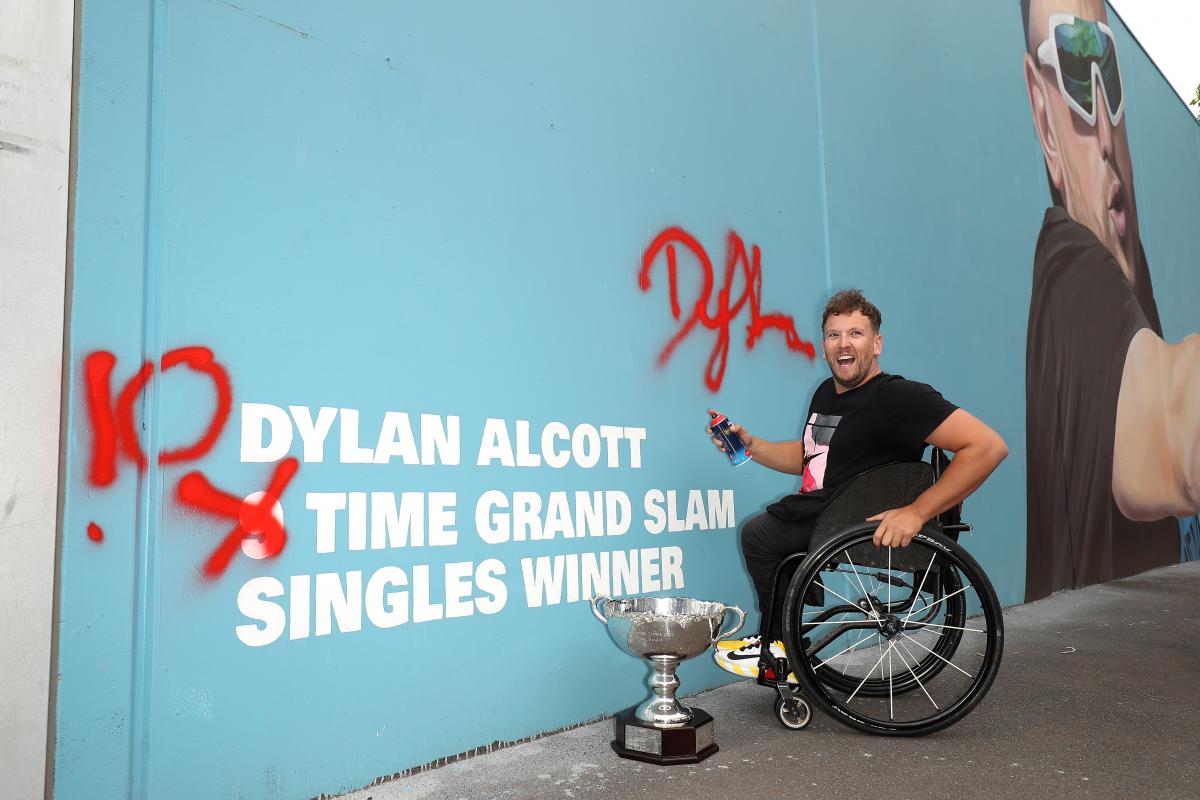
The year 2020 was meant to be like no other for the Paralympic Movement in the Oceania region. A year filled with medal achievements for some of the more developed nations, and a year filled with new milestones for the Movement for the smaller island countries.
While the year was like no other – one never to be expected – the Oceania region is celebrating success, with so many highlights which will only ensure further success in years to come.
Momentum
The Australian Open is always a highlight for tennis fans across the world. One of the last international events before sporting events across the world came to a halt, Dylan Alcott prevailed once again beating Andy Lapthorne 6-0, 6-4 to win the final on Rod Laver Arena. In a generous display of humanity, he donated AUD 40,000 of his prize money to people with disabilities affected by the 2019-20 Australian bushfires.
Japan’s Shingo Kunieda, although not from the Oceania region also made history at the Australian Open as he equalled Dutch Esther Vergeer’s record of winning 44 wheelchair tennis Grand Slam titles on Sunday.
A key success story and standout highlight for 2020 in the Oceania region was the participation of all seven Pacific NPC’s in the Queensland Athletics Championships, including international classification for vision impaired and physical impairments. This was only made possible through the IPC's Grant Support Programme.
The grant investment is the most significant and successful for the Oceania Paralympic Committee, and has enabled the region to have all NPC’s now with classified athletes and a potential to have full representation of our region in Tokyo.
At the Queensland State Championships in Australia, all seven countries won at least one medal which will assist in promoting Para sport across the region, two athletes achieved a Tokyo minimum entry standard, and eight performances were within 5 per cent of the minimum standard, proving that momentum is building.
Role models
Like many parts of the world, Paralympians were sought after in these unprecedented times with people all over the world looking to their strength, adaptability and ability to prevail.
Three Australian athletes shone brighter than ever to an audience outside of sport. Madison de Rozario’s career and achievements were recognised with the Australian Paralympian commemorated as a Barbie toll.
Rozario, along with numerous other female Para athletes, became a “She-ro” doll for International Women’s Day. De Rozario worked closely with the team at Mattel to create her likeness, which features her iconic platinum hair and top knot, racing chair and palm guards.
Furthermore, Ellie Cole and Ryley Batt also from Australia had all eyes on them after starring in the Netflix hit Rising Phoenix. Together with seven other athletes, they captivated audiences all over the world, displaying the values of the Paralympic movement to a whole new audience.
School students across Australia had a taste of the Paralympic Games, with the IPC’s education programme lifting their spirits during testing times. Paralympians passed on messages of hope and strength to pupils across schools in Australia who have worked through the challenges of the pandemic.
As part of the IPC’s global education programme I’mPOSSIBLE, Paralympians connected virtually to classrooms in their respected countries. They shared their personal stories and encouraged more discussions among children, while introducing them to a new world of sport that many had never discovered previously.
Resilience
In a year of extreme challenges, there was one story that struck the hearts of many across the world. The Kiribati Team travelling to the Queensland Athletics Championships left Tarawa to much fanfare from their country as the first Para athletes to represent Kiribati at an international competition. With visa issues complicating their final preparations, it was extreme luck that saw them arrive safely in Australia on 29th February.
Following the success of some of the island countries at the Queensland Athletics State Championships, the team found themselves in a long, gruelling and mentally challenging circumstance, stranded in Fiji due to international border closures.
It was nine months of hardship, being away from home for the two athletes, Karea Tioti and Ongiou Timeon and it was also the determination of their coach Karotu Bakae to lift them, support them and care for them over the period of time that showed the Paralympic value of courage from our Kiribati family. The team’s resilience was something to behold.
Legacy
Part of being involved in the Paralympic Movement is paying respect to those who paved the way for today’s rising stars. Paralympics NZ launched a mission to find 22 of their celebrated Paralympians, or their families, as part of The Celebration Project.
The campaign launched in 2019 and acknowledges past Paralympians, honouring them with pins and numbers to mark their place in history. While 77 had previously been found, there are still more that they won’t stop searching for and used their time in lockdown to search.





